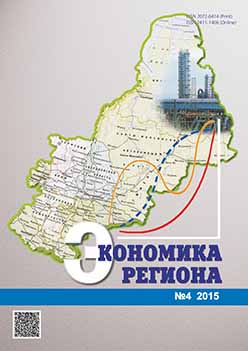Pension Reforms in Countries with Developed and Transitional Economies
Pension Reforms in Countries with Developed and Transitional Economies
Author(s): Sergey Anatolyevich Belozyorov, Zhanna V. PisarenkoSubject(s): Economy, Geography, Regional studies
Published by: Институт экономики Уральского отделения Российской академии наук
Keywords: pension reform; scenarios of pension reforms; pension system; pay-as-you-go system; defined benefit; defined contribution; poverty protection; income replacement; pension rights; risks; pension scheme
Summary/Abstract: The subject matter of the research is as follows: pension reforms conducted by some states define the transformation of pension systems. The choice of countries is stipulated by the fact that each of them has different types of pension systems and preconditions for reforms. The purpose is to develop an approach that allows comparing and evaluating changes in disparate systems. The hypothesis is that the ongoing pension reforms, regardless of initial conditions and their type lead to a similar trajectory of pension systems development in all countries. The methodology rests on the comparative analysis that was carried out on the basis of a single algorithm that allows to determine significant modifiable parameters and the overall direction of reform. The novelty is that the authors research the ongoing pension reform from the viewpoint of pension rights formation and distribution of risks. The results are a single trajectory of reforms implementation for the studied countries, which confirms the authors’ hypothesis. The specific features of the Russian pension system do not affect the reform trajectory, which is similar to all countries. The conclusions are the following: the reducing pressure on pension system requires increasing revenues and limiting the number of potential participants. This is achieved by expanding sources of financing, increasing the dependence of pension on an employee’s contributions, transferring the risks of old age into the individual level, and employment motivation during the retirement period. The principle of the intergenerational solidarity loses its value. The obtained results can be used for the pension reform modification in the Russian Federation, the development of voluntary pension insurance based on the experience of other countries and risks faced by the modern Russian pension system.
Journal: Экономика региона
- Issue Year: 11/2015
- Issue No: 4
- Page Range: 158-169
- Page Count: 12
- Language: English

